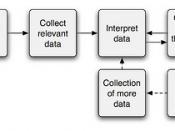After having read Professor Joorden's article, I was slightly unsure about how to approach my reflection of his perspective. I didn't entirely agree with his opinion but at the same time I noted how he'd taken any likely defenses I could have possibly used to present the opposing views and demolished them. The article did make me think very deeply about the issue of the paradox between human and animal research ethics and though I am not completely convinced of the merits of Professor Joorden's position and I wouldn't call myself an "animal researcher abolitionist," I do understand his perspective. I just don't entirely agree to it and so I've presented my own thought process in this piece and hope that I manage to convey my views just as successfully.
Before delving into an intense discussion of perspectives on the topic at hand, I would like to first outline my findings of research ethics on a broader spectrum.
Understanding the ethical principles and guidelines that influence research is imperative for every researcher and professional working in healthcare. In order to achieve this understanding, one must first determine the meaning of ethics, and how it applies to one's discipline. The following will address the essentials of research ethics.
Research ethics are defined as "the moral problems encountered in connection with scientific or other academic research, by the researcher, their subjects or their social environment". (Kidd, Finlayson, 2006) A primary role of the healthcare professional is to make decisions that hold he/she accountable to their profession and society, as well as, to patients and families. A major component of research ethics is ethical theory. Ethical theory is defined as "the study of the nature and justification of general ethical principles that can be applied to moral problems, and attempts to...


